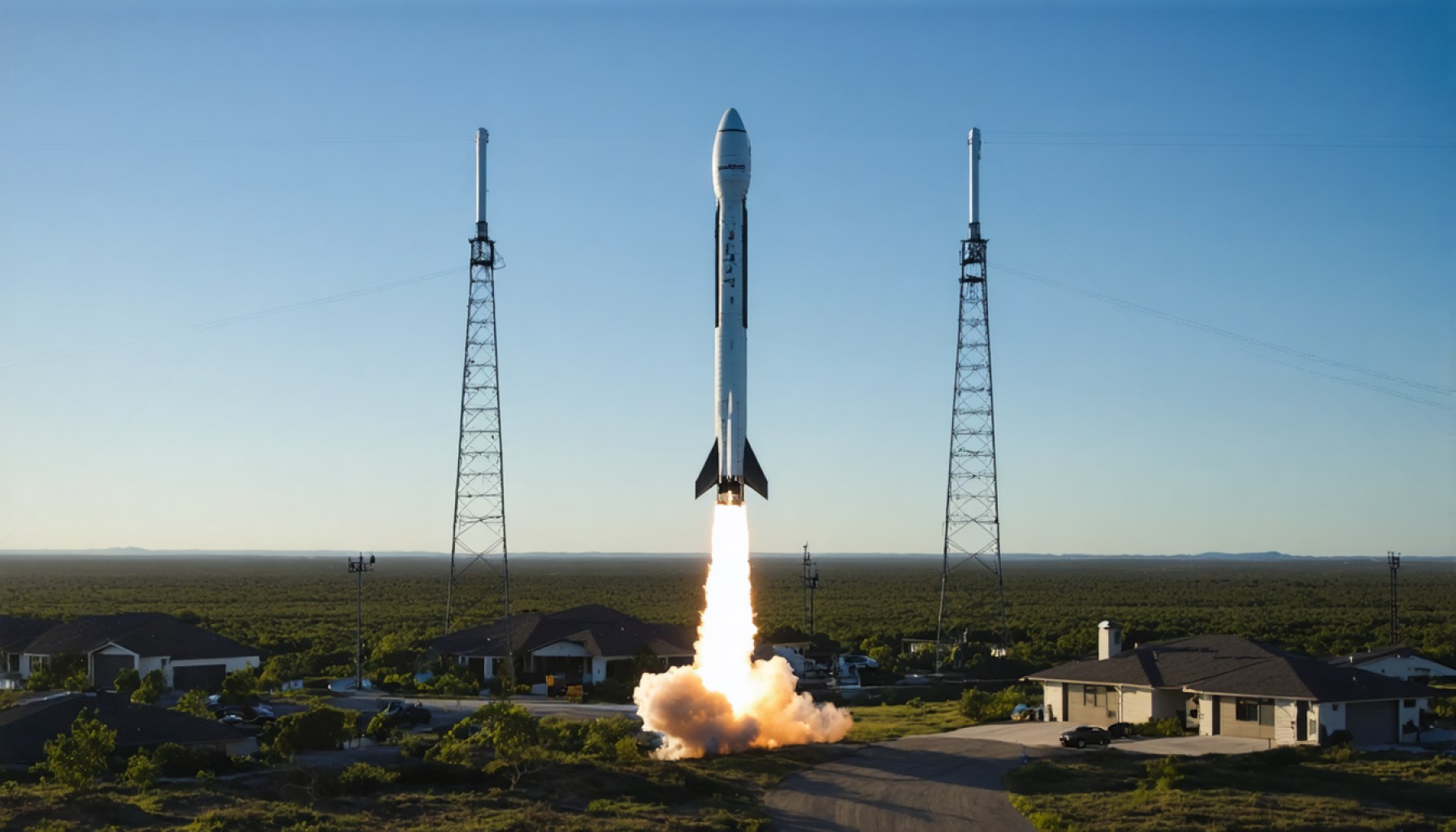- SpaceX offers free Starlink satellite dishes, usually costing $349, to new U.S. customers committing to a $120 monthly plan for a year.
- This offer is available only in areas where Starlink’s capacity allows, excluding regions with congestion or heavy digital traffic.
- Similar promotions have been trialed in countries like Italy, Australia, Canada, and the UK.
- Elon Musk hints at future expansion if the U.S. trial succeeds, underlining SpaceX’s goal to enhance global connectivity.
- Customers must use the dish at a specified address to avoid additional charges, emphasizing a commitment to stable service.
- This strategy marks SpaceX’s boldest attempt to expand its presence in the home internet market.
There’s a celestial shift on the horizon, as SpaceX beckons select corners of the United States with an enticing offer. The company, known for its audacious ventures, has unveiled a daring opportunity: free Starlink satellite dishes for new customers willing to embark on a year-long digital journey. Typically valued at a steep $349, this sleek piece of space technology promises to soar into homes at no initial cost, provided you commit to a $120 monthly plan.
Move quickly, though; this isn’t a blanket offer. The discounted dish lands only where Starlink’s constellation above has a little extra room to spare. In regions burdened by heavy digital traffic, folks find themselves penned onto waitlists or face a dreaded “congestion charge” to break into the celestial web.
Globally, this isn’t SpaceX’s first rodeo with free Starlink trials. Similar offers have graced skies over Italy, Australia, and yes, even Canada, amid simmering trade tensions. In Britain too, households are catching glimpses of this deal’s allure.
Elon Musk, the mastermind at the helm, suggests this offer is an experiment. His words suggest a probable expansion if this trial proves fruitful, teasing audiences on X, the platform formerly known as Twitter, illustrating SpaceX’s appetite for evolutionary leaps.
Yet, the zero-dollar dish doesn’t come without strings. Bind it to a specified address, SpaceX orders, or risk facing an unexpected bill for the dish if the tether is cut. It’s a contract of stability, allegorically sealing patches on an otherwise shifting digital quilt.
Amidst discounted plans and strategic expansions, this is SpaceX’s most compelling gambit yet to capture the domestic market. A clear message rises from the horizon: For those under the right stars, the future of connectivity lies within reach, without the initial tag.
Unlocking the Sky: What You Need to Know About SpaceX’s Free Starlink Offer
SpaceX’s offer for free Starlink satellite dishes is an invitation to be part of its ambitious plan to provide high-speed internet across the globe. If you’re considering this opportunity, let’s dive into the various aspects and implications of this groundbreaking offer.
The Starlink Offer: A Closer Look
Free Dishes with a Catch: While the $349 satellite dish comes at no cost, the offer is contingent upon subscribing to a $120 monthly plan for a minimum of one year. This locks you into a significant investment in SpaceX’s internet service.
Eligibility and Location: The free dish offer is available selectively in regions where Starlink can accommodate more users. In high-demand areas, users may face waitlists or additional charges due to network congestion. Checking availability in your area is crucial before making a decision.
Pros & Cons Overview
Pros:
– Cost Savings: Eliminates the upfront cost of the dish.
– High-speed Internet: Access to reliable internet in remote areas where traditional broadband might be lacking.
– Global Reach: Offers the potential for connectivity in previously underserved regions.
Cons:
– Geographic Limitations: Only available in select areas with network capacity.
– Long-term Commitment: Requires a 12-month contract at $120 per month.
– Address Binding: The dish is linked to a specified address and cannot be moved without penalties.
Technology Specs & Features
Starlink System: Starlink uses a constellation of low-Earth orbit satellites to provide high-speed internet. The system is particularly beneficial in rural and remote areas, providing speeds that are competitive with traditional broadband services.
Dish Design: The sleek and compact design of the Starlink dish, also known as “Dishy McFlatface,” is user-friendly and easy to set up. It includes automatic features for optimal alignment with satellites.
Insights & Predictions
Future Expansion: SpaceX’s CEO Elon Musk hinted that this trial could extend if successful. Given the global demand for ubiquitous internet access, an expansion could benefit more rural areas worldwide.
Market Trends: The satellite internet market is poised for growth, with increasing demand for high-speed connectivity. SpaceX, along with other competitors like Amazon’s Project Kuiper, continues to innovate and expand service offerings.
Actionable Recommendations
– Check Eligibility: Verify the availability of the offer in your area through the Starlink website.
– Assess Internet Needs: Consider your monthly data usage and compare it with the offerings of Starlink vs. existing broadband services.
– Evaluate Budget: Weigh the long-term cost of the $120 monthly fee against the waived upfront cost.
Controversies & Considerations
– Congestion Concerns: Some users report service interruptions during peak times due to network congestion.
– Environmental Impact: Critics point to the potential environmental impacts of the increasing number of satellites in orbit.
For more information or to check service availability, visit the Starlink website.
This initiative by SpaceX offers a rare opportunity for those in eligible regions who seek reliable and fast internet service, especially in rural and remote areas. The evolution of global connectivity is here, and the future looks promising for those under “the right stars.”
